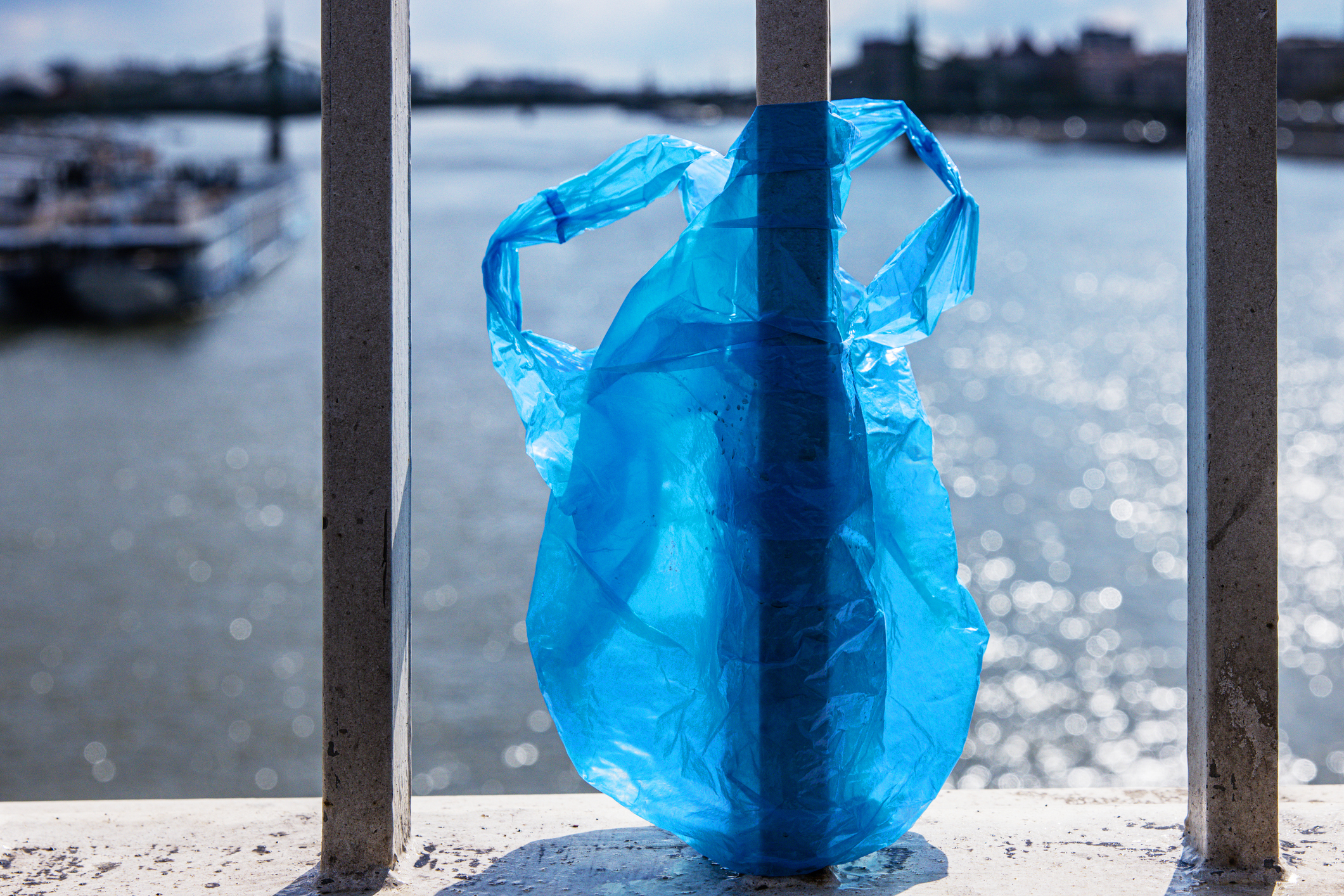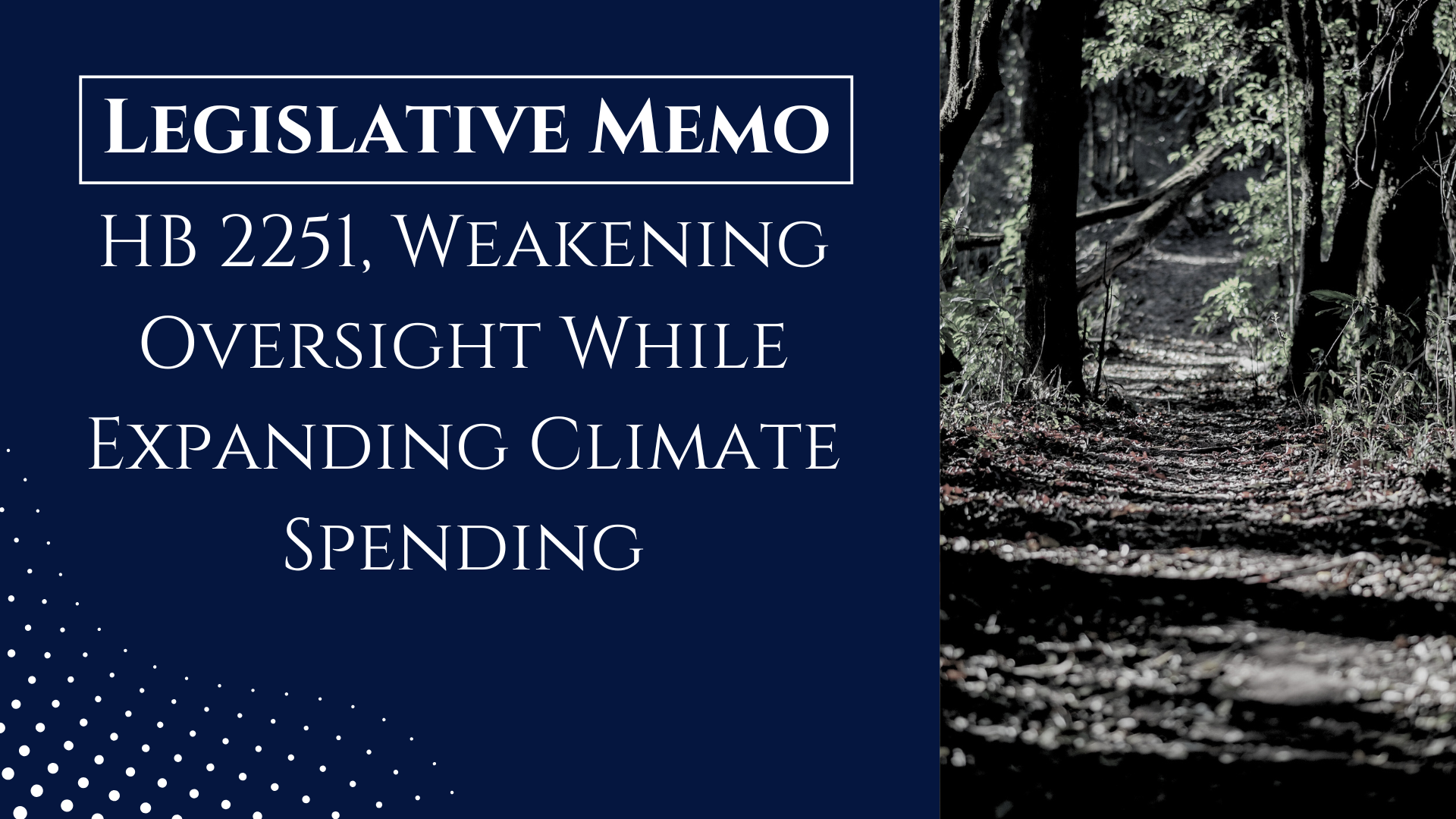The state’s ban on thin plastic grocery bags is increasing the amount of plastic used by shoppers and overall environmental harm, contrary to the intent of the law.
That is the conclusion of a report from researchers at Washington State University prepared for the Washington State Departments of Commerce and Ecology. The report notes that the law “may not be effective at reducing environmental impacts, as the bags are often not reused, and certainly not reused enough to offset their higher contribution to plastic waste and litter and increased lifecycle costs.” The report found that although shoppers are using about half the number of bags they did previously, the increased thickness of the bags offsets the reduction in use.
This echoes the argument we have been making for many years, most recently in March of this year, that plastic bag bans increase environmental damage. Studies have routinely found that plastic bag bans end up doing more harm than good because shoppers switch to bags that use more energy, water, and resources.
In spite of science and data repeatedly demonstrating that the bag ban is harmful, staff at the Departments of Commerce and Ecology are not happy. They favor the ban and have gone to great lengths to undermine the WSU report, adding a lengthy rebuttal to the front of the study explaining all the study’s shortcomings and arguing against its recommendations.
The excuses provided by Commerce and Ecology staff are wonderfully reminiscent of those offered by Sir Humphrey Appleby from the 1980s British TV satire, “Yes Minister.” Sir Humphrey is a bureaucrat in the British government and in an episode that aired in 1981, explains all the ways government agencies can discredit a report they don’t like.
For example, Sir Humphrey explains that an agency can claim a report does not provide “sufficient information on which to base a valid assessment.” Fittingly, the writers of the preamble written by Commerce and Ecology claim the WSU study’s conclusions are “based upon insufficient data from within Washington State.”
Sir Humphrey also explains that bureaucrats can claim that “much of the evidence is inconclusive.” Obligingly, Commerce and Ecology staff write, “the lack of robust available data limits the report’s ability to present a comprehensive view” on how the ban is working.
Additionally, a report can fail, explains Sir Humphrey, because “it leaves important questions unanswered.” What kind of questions? Commerce and Ecology staff note that the WSU study fails “to consider larger social, economic, and environmental implications.” What are those implications? The agency staff don’t explain nor how they would be balanced against the conclusions in the report. The fact that the WSU researchers were not asked to examine those considerations is immaterial. Those questions remain unanswered, undermining the utility of the study as a basis for decision-making.
The state’s preamble does acknowledge that “Without sufficient reuse, reusable carryout bags made of paper, plastic, or fabric have higher environmental lifecycle costs than their single-use counterparts.” This admission directly contradicts one of the claims made in the intent section of the law that claims, “Alternatives to single-use plastic carryout bags are convenient, functional, widely available, and measure as superior across most environmental performance metrics. Alternatives to single-use plastic carryout bags feature especially superior environmental performance with respect to litter and marine debris, since plastic bags do not biodegrade.” The WSU study (among others) demonstrates that is not accurate and Commerce and Ecology staff seem to agree.
Left with a study showing the current policy increases environmental damage, what do agency staff recommend changing? They support keeping the bags at the current thickness but oppose removing the thickness requirements entirely, as was recommended by the WSU researchers. The study shows the current thickness requirement is increasing environmental damage, agency staff say there are other concerns without quantifying them.
Agency staff claim changes in the law should focus on “equity impacts rather than considering only environmental costs.” They do support a total ban on plastic grocery bags, but note that “this policy raises potential equity and environmental justice impacts.” How will the agencies measure equity and environmental justice impacts against the data showing environmental harm? They can’t. They are just vague slogans that can be used to come to any conclusion agency staff prefer.
The agencies’ preamble is a perfect example of how government staff can undermine studies they don’t like, instead choosing subjective metrics they can manipulate without having to provide data of their own. Given a choice between incomplete science and purely subjective judgement, agency staff much prefer the freedom of vague metrics like “environmental justice” and “equity.”
In the meantime, however, Washington’s law on plastic grocery bags will continue to increase environmental damage – the very opposite of what was claimed when the law was adopted.






